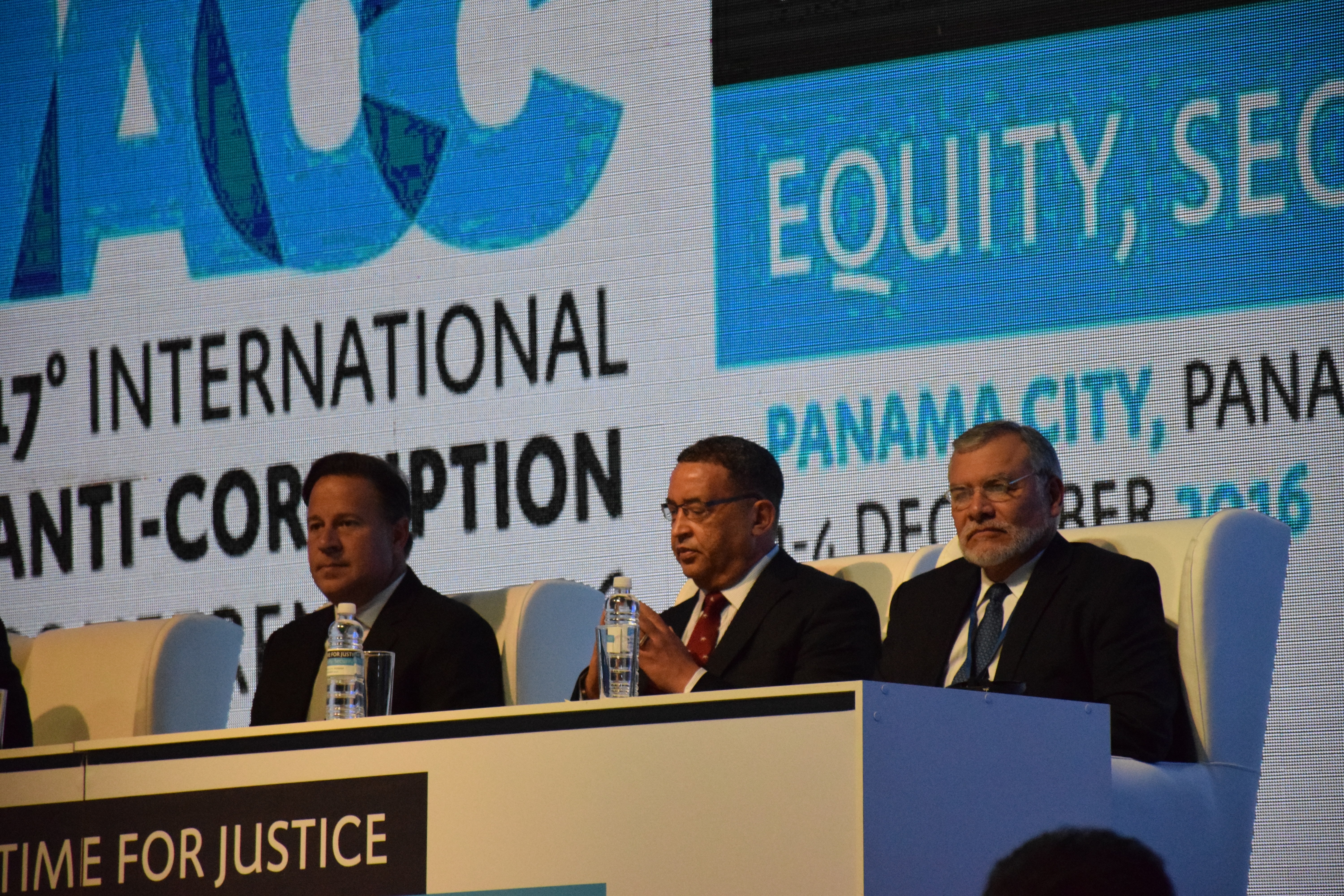by Brendan Sinnott and Evert-Jan Lammers
The annual IACC has kicked-off. On the opening panel, the President of Panama addressed the 1,000+ people audience. The speaker from the World Bank replied “Mr. President, I respect you” but then shook the President’s hand last. It set the tone. All presentations were a cry for equality and justice.
Today’s presentations confirmed that more cooperation is required to uncover corruption and to dismantle criminal constructions. What initiatives will help us go forward? Sharing data like in wiki-leaks and Panama Papers. Sharing analytical capabilities such as computer capacity. Sharing methodologies and approaches so that we can effectively collaborate if needed. Together we can achieve what nobody can do on his/her own.
Truly interesting were the testimonials from investigative journalists on what has happened since the Panama Papers leaked out earlier this year. They drafted a dark picture of the offshore industry. In one visit to a local law firm, one can set-up limited liability companies in several jurisdictions so that your identity as ultimate beneficiary owner is hidden and your illicit finance can flow freely. The abuse of offshoring is tax-porn.
Anonymous companies are the getaway vehicle for the criminal or corrupt. 75% of foreign bribery cases in the past 15 years have involved “intermediaries”, including subsidiaries or other corporate vehicles (source: ECD). 70% of the biggest corruption cases between 1980 and 2010 involved anonymous shell companies (source: World Bank, UNODC). Not the Caribbean but the US is the favourite destination for corrupt politicians from around the world to set up companies to move or hide dirty money (source: World Bank, UNODC).
Certain offshore constructions are so strong that they can stop investigations from tax authorities or public prosecutors. The weakest point is the risk of divorce, when the spouse orders the dismantlement of an offshore construction to get his/her share. Independent investigators such as journalists use such sources, next to public sources, when analysing the data leaks. Before making their findings public, they present them to the concerned high-profile individuals, as gentlemen. Only then they take of their gloves.
The presentations on this first day have demonstrated that the Panama Papers are a wake-up call to individuals and organizations that make use of offshoring. If you have nothing to hide, you better show that. If you have something to hide, be aware that data leaks are the new data sharing in the fight against fraud and corruption.



